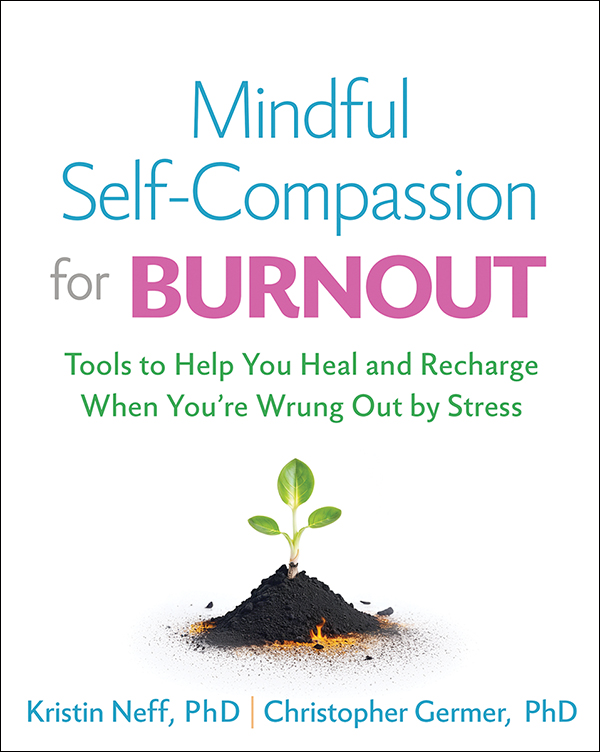About
“A moment of self-compassion can change your entire day. A string of such moments can change the course of your life.”

Short Bio
Chris Germer, PhD is a clinical psychologist and lecturer on psychiatry (part-time) at Harvard Medical School. He co-developed the Mindful Self-Compassion (MSC) program with Kristin Neff in 2010 and MSC has since been taught to over 250,000 people worldwide. They co-authored two books on MSC, The Mindful Self-Compassion Workbook and Teaching the Mindful Self-Compassion Program.
Chris spends most of his time lecturing and leading workshops around the world on mindfulness and self-compassion. He is also the author of The Mindful Path to Self-Compassion; he co-edited two influential volumes on therapy, Mindfulness and Psychotherapy, and Wisdom and Compassion in Psychotherapy; and he maintains a small online practice in Cambridge, Massachusetts, USA.
Expanded Bio
Chris Germer has been interested in the science of psychology and contemplative practice since early adulthood. He graduated from Colby College, Waterville, ME with a BA in psychology in 1974, and then traveled abroad for 3 years to conduct research on selective attention in schizophrenia at the University Psychiatric Hospital in Tübingen, Germany, and implement a field study on indigenous mental health healing practices in India under the guidance from the Bangalore National Institute of Mental Health. Chris became fascinated by the many varieties of yoga and meditation in India, and he returned to India over a dozen times to study with a variety of teachers.
In 1978, Chris went to Temple University (Philadelphia, Pennsylvania) for graduate training in clinical psychology and received a PhD in 1984. The title of his dissertation was “Contextual Treatment of Test Anxiety,” reflecting an early interest in acceptance-based treatment methods.
After graduation, Chris moved to Cambridge, Massachusetts where he met his wife, Claire, a molecular biologist, and they have been living in Cambridge ever since. Chris has maintained a private psychotherapy practice since 1985, and has also taught and supervised clinical trainees at the Cambridge Health Alliance (CHA), Harvard Medical School.
Chris first learned mindfulness meditation at a hermitage in Sri Lanka in 1977. His interest in mindfulness was rekindled in 1985 when he joined a study group in Cambridge that became the Institute for Meditation and Psychotherapy. Decades of conversations came together in 2005 with the publishing of a co-edited, professional text, Mindfulness and Psychotherapy (now in its 2nd edition), and Wisdom and Compassion in Psychotherapy (2012). Mindfulness is the heart of Buddhist psychology, and interest in mindfulness, acceptance, and compassion-based psychotherapy has recently blossomed to become a mainstream approach to psychotherapy.
Chris’ primary interest is self-compassion—the warmhearted attitude of mindfulness when we suffer, fail, or feel inadequate. He stumbled onto self-compassion in 2005 as a solution to his decades-long struggle with public speaking anxiety.
In 2007, Chris began collaborating with Kristin Neff, psychology professor at the University of Texas, Austin, and pioneering researcher on self-compassion. In 2009, he wrote the book, The Mindful Path to Self-Compassion, and, in 2010, Chris and Kristin co-developed Mindful Self-Compassion (MSC), an empirically-supported, 8-week training program for the general public. The Center for Mindful Self-Compassion was established in 2012 and since then over 250,000 people have learned MSC from over 3,700 teachers worldwide. A bestselling workbook on the MSC program appeared in 2018 and a professional textbook was released in 2019, both co-authored by Chris and Kristin.
In 2015, Chris helped to establish the Center for Mindfulness and Compassion at the Cambridge Health Alliance. He is on the faculty and serves as a senior advisor and research consultant.
Chris spends his professional life traveling internationally, teaching and writing about mindfulness and self-compassion, supporting MSC teachers and students, consulting on self-compassion research, and maintaining a modest psychotherapy practice.
Chris Germer: Past, Present and Future
Interview with Nina Siegal
FLOW International magazine, January 2020
Books, articles, and other publications
Mindful Self-Compassion for Burnout: Tools to Help You Heal and Recharge When You're Wrung Out by Stress
The Mindful Self-Compassion Workbook: A Proven Way to Accept Yourself, Build Inner Strength, and Thrive
This science-based workbook offers a step-by-step approach to breaking free of harsh self-judgments and impossible standards in order to cultivate emotional well-being.




